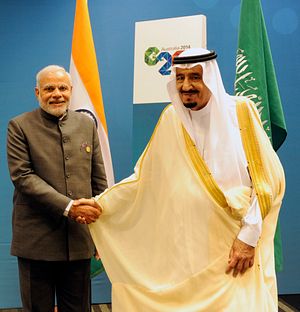Kashmir’s special autonomous status was challenged this week when the Indian government of Narendra Modi passed a bill revoking Article 370 of the constitution. With the change, the predominately Muslim region of Jammu and Kashmir was downgraded from a state to a union territory – and thus lost its freedom to design and enact its own laws. Previously the Jammu and Kashmir government enjoyed autonomy, save for decisions on foreign affairs, defense, finance, and communications.
The response in India’s neighborhood was immediate. Pakistan condemned the move and downgraded relations, removing its ambassador and stopping trade. Pakistan also brought the matter to the Organization of Islamic Cooperation, which represents 57 Muslim-majority countries around the world, and its Contact Group on Jammu and Kashmir. It issued a condemnation and reiterated the international status of the Kashmir dispute. China, similarly, pointed out the international implications, stating that the Kashmir dispute should be resolved jointly by India and Pakistan. China’s position may also have been influenced by the parallel move to declare Ladakh, which is claimed by Beijing, an Indian union territory.
Looking further afield in the Muslim world and particularly the Middle East, perhaps the most striking reaction came from the UAE. Soon after the bill was passed, its ambassador to India took New Delhi’s line, calling the change an internal matter that would help improve the efficiency and effectiveness of administration and socioeconomic development in the region. That was subsequently toned down by the foreign minister, who called for restraint and dialogue on both sides.
The later UAE position reflected the statements made by other key states in the Middle East, including Saudi Arabia, Iran, and Turkey. All three also made similar points that the conflict should be resolved through dialogue between India and Pakistan and that steps should be taken to avoid raising tensions. Yet of the three, Pakistani political and media sentiment has arguably been most positive toward Turkey and President Erdogan’s telephone offer of “steadfast support” and future assistance.
What explains the muted reaction from the Middle East?
One reason is that India constitutes a more important commercial partner than Pakistan. The Indian economy is nine times the size of Pakistan’s. India therefore offers greater opportunities for trade and investment. By contrast, Pakistan’s economic situation is relatively weak and vulnerable; its government had to seek emergency loans worth around $2 billion each from China and Saudi Arabia earlier in the year.
Second, the issue of Kashmir has arguably diminished in importance for political leaders in the Middle East. For several decades after 1947, Indian governments adopted a pro-Palestinian stance as a way of building support among the Muslim population in Kashmir as well as the wider Muslim world, including the Middle East. But when the Arabs began meeting with and pursuing peace processes with Israel, Indian leaders questioned the necessity of being “more Arab than the Arabs.” They began to cultivate their own relations with Israel, which included a growing arms trade after 1999. India experienced no backlash, either in its individual ties with Arab countries or over Kashmir, while doing so, beyond the statements made at the OIC.
Third, rivalries between Pakistan and some of these Middle Eastern states have been more problematic than those with India, thereby overshadowing issues like Kashmir. For Iran, the border region has been problematic: Tehran has accused Pakistan of turning a blind eye to Saudi assistance for Baloch militants that have targeted Iranian troops and installations. The two are also competing for influence in Afghanistan as well as commercially for a greater share of the Indian Ocean shipping markets in their respective Chabahar and Gwadar ports.
Meanwhile, Kashmir has become a space in which the rivalries operating within the Middle East are being played out. Previously, Saudi Arabia provided assistance in the form of religious training and mosque construction. More recently, other countries with which it has competed for regional influence – Turkey and Iran – have also entered Kashmir to cultivate the population. Although the objectives may remain somewhat nebulous, the intention is surely to build a base of support among the various Sunni and Shia communities that live there, which can be called upon in the future.
Given the current state of affairs, what does the current ambivalence in Muslim countries in the Middle East mean for the future of the Kashmir dispute? On one side, India’s leaders will be encouraged that the present situation is to their advantage and has limited the scope for Pakistan. On the other side, this may be as good as it gets for India.
Domestically, Kashmir will remain a powder keg. As part of the move to revoke Article 370, India expanded its security presence, imposed a curfew, detained the region’s political leadership, and imposed a communications blackout. But that situation cannot be sustained indefinitely. Eventually Indian forces will have to pull back, which may expose it to likely public opposition and action. That will only be exacerbated with the accompanying revocation of Article 35A, which allowed Jammu and Kashmir to determine who were “permanent residents,” with those who were not banned from buying property. Under the new arrangements anyone will be able to do so, potentially diluting the Muslim population in the region.
Internationally, the issue of Kashmir will not go away. Despite India’s effort to “internalize” its administration, Pakistan will continue to push the subject within the OIC. In addition, the position of leaders in the Middle East arguably depends much on the current composition of state-society relations. Although authoritarian, these governments are not completely blind to public opinion. Should they experience similar instability to that experienced during the Arab uprisings in 2011, regimes like the Saudis’ or Iranians’ may become more vulnerable and more inclined to exploit issues like Kashmir as a way to reclaim legitimacy as defenders of Islam.
Guy Burton is a Visiting Fellow at the London School of Economics Middle East Center and an Adjunct Professor at Vesalius College, Brussels.

































